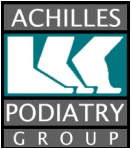“No pain, no gain,” right? Many athletes, including runners, subscribe to that philosophy. But in the case of a foot injury, it may only add to your woes. So can the wrong footwear.
I’m not a runner, but I am a walker. My husband and I do about four brisk miles every morning, rarely skipping a day. When we first started our new exercise routine, I was definitely wearing the wrong footwear. Several of my toes were bruised and my toenails were bloody. It took a long time to clear up. The sneakers that seemed okay at the gym were definitely not okay for serious walking. So I went out and found a better pair of walking shoes and haven’t had a problem since.
So what do serious runners need to know about foot health? Here are three main tips:
Your footwear is super important
A lot of beginners make the mistake of wearing old sneakers or don’t invest in new sneakers. She suggests buying a new pair of lightweight sneakers that provide arch support. She also said beginners shouldn’t start out with a five-mile run, but start slowly and build up your tolerance.
Footwear is no less important to the seasoned jogger. For runners, Sutera recommends:
- If your running shoes are more than a year old, throw them out.
- Use your running shoes for that purpose only. You put a different wear pattern on shoes when you’re casually walking or participating in other sports.
- Stay away from trendy shoes, such as those that are advertised to make your legs work harder. For most people, they’re a huge mistake. They can create instability, put too much stress on your legs, and make you more likely to hurt yourself.
According to the American Podiatric Medical Association, running footwear should provide ample shock absorption, which will help you avoid injury. A podiatrist can measure your feet and tell you exactly what type of shoes are best for you.
Stretching before running really does matter, and a massage is even better
Stretching both before and after running is important. It helps keep your muscles from becoming too tight. “Without flexibility and recovery, you won’t have a long career in your sport,” said Sutera. “It’s good advice for everybody. And massaging is highly underrated. You don’t have to have it professionally done. You can massage your feet and legs yourself.”
The American Academy of Podiatric Sports Medicine website lists these warm-ups:
- Wall Push-Up (image on left): This stretches the achilles and calf muscles one leg at a time. Stand with the rear foot approximately two to three feet from the wall. The rear leg should be straight, the front leg is bent and your hands touch the wall. Feet point straight ahead, heels are on the ground. Hold for 10 seconds, switch legs, repeat 10 times.
- Knee Clasp (image on bottom right): Lie on a firm surface. A carpeted floor or grass is best. Bring both knees to your chest. Hold for 10 seconds. Repeat five times. This stretches the hamstrings and lower back.
- Hamstring Stretch (image on top right): Straighten one leg, place it, with the knee locked, on a footstool. Bend your body and bring your head towards the leg. Hold this position for 10 seconds. Switch sides, repeat 10 times.

That ache or pain is telling you something…Respect the injury
“Playing through the pain” is supposed to make you tough, or so they say. When it comes to running, Sutera says that’s a mistake. “Respect your injury. You may feel enthusiastic and passionate, but if you’re in pain, it’s a warning sign you should pay attention to.” Among the common problems of runners are:
- numbness in toes
- toenails turning black
- swelling, inflammation in tendons
- heel pain, arch pain, shin splints
- stress fractures
“To continue to run and pound on an injury is a really bad idea. The ‘no pain, no gain’ rule doesn’t apply here,” said Sutera of the fairly common mantra among avid runners. “If it’s just muscle fatigue, you’ll recover, but if you have damage to a tendon, bone, or nerve, you need help.”
If you think you may have a foot injury, and walking or running is important to you, see a podiatrist so you can get back out there as quickly as possible, doing what you love to do.
If you have been experiencing Foot Pain, contact the Foot and Ankle Specialists at Achilles Podiatry for further evaluation and treatment.
Source: Care2

